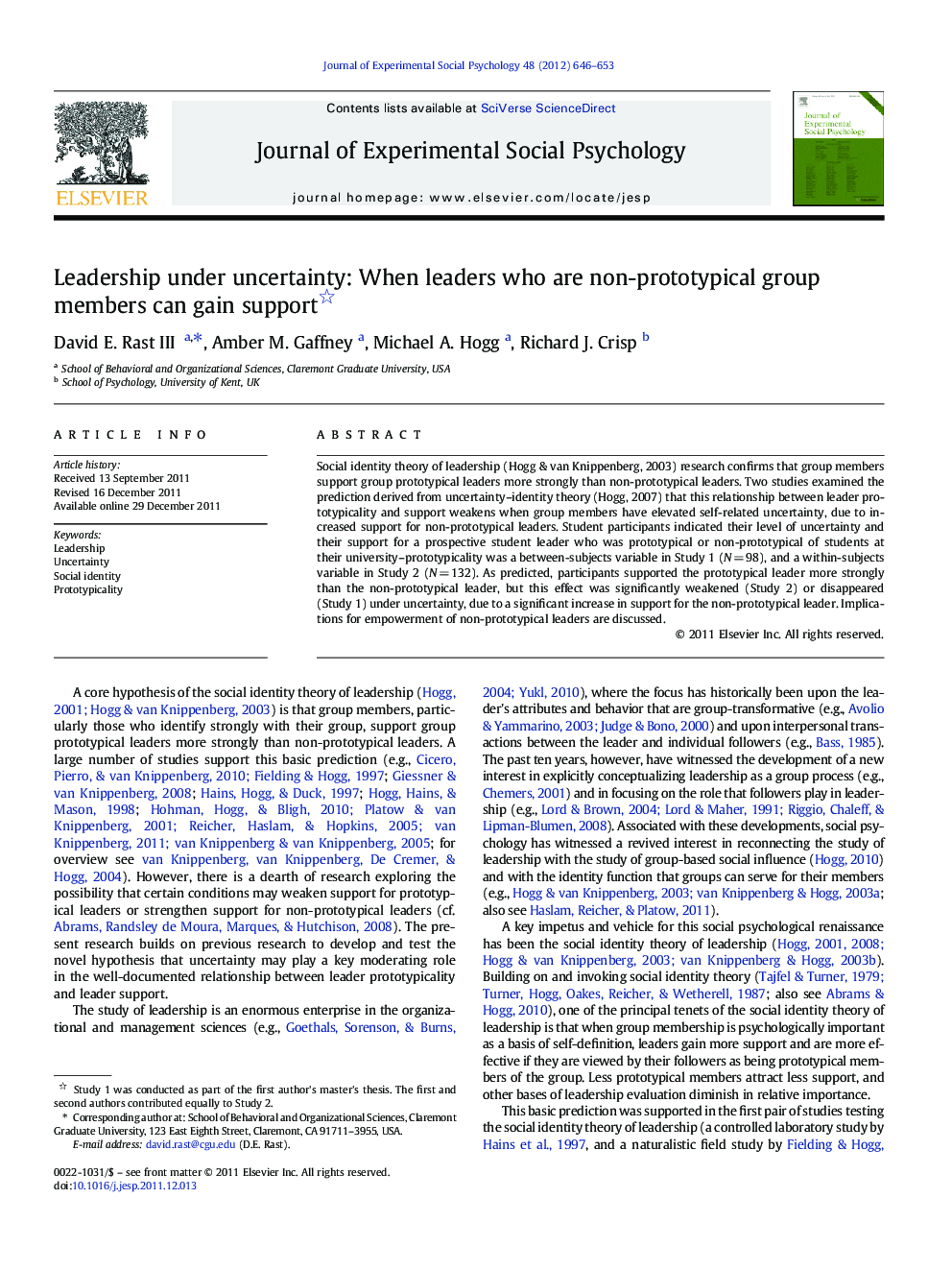| Article ID | Journal | Published Year | Pages | File Type |
|---|---|---|---|---|
| 948400 | Journal of Experimental Social Psychology | 2012 | 8 Pages |
Social identity theory of leadership (Hogg & van Knippenberg, 2003) research confirms that group members support group prototypical leaders more strongly than non-prototypical leaders. Two studies examined the prediction derived from uncertainty–identity theory (Hogg, 2007) that this relationship between leader prototypicality and support weakens when group members have elevated self-related uncertainty, due to increased support for non-prototypical leaders. Student participants indicated their level of uncertainty and their support for a prospective student leader who was prototypical or non-prototypical of students at their university–prototypicality was a between-subjects variable in Study 1 (N = 98), and a within-subjects variable in Study 2 (N = 132). As predicted, participants supported the prototypical leader more strongly than the non-prototypical leader, but this effect was significantly weakened (Study 2) or disappeared (Study 1) under uncertainty, due to a significant increase in support for the non-prototypical leader. Implications for empowerment of non-prototypical leaders are discussed.
► We examined the role of self-uncertainty in the social identity theory of leadership. ► Two experiments confirmed that prototypical leaders were generally supported. ► Increased self-uncertainty strengthened support for non-prototypical leaders.
